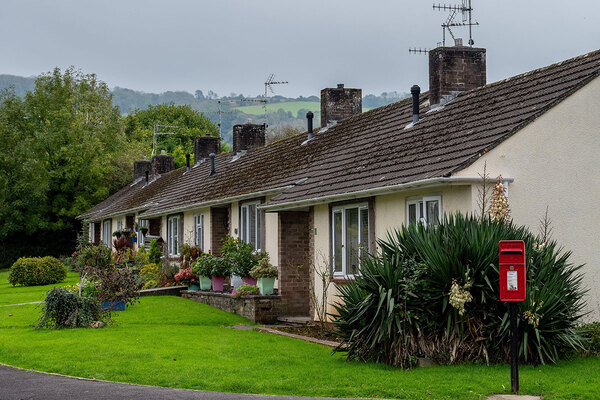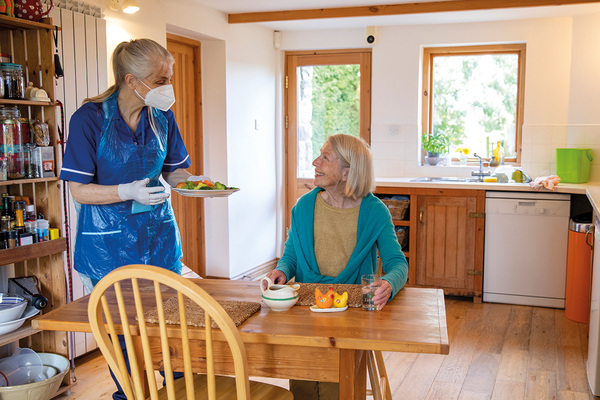You are viewing 1 of your 1 free articles
Are we equipped for an ageing population in affordable housing?
Ensuring the housing being built is dignified and sustainable for older residents should be a priority for councils, writes James Green, director of development and regeneration at Westminster City Council
The UK is on the brink of a demographic revolution. The ageing population has many implications, especially in terms of the demand for affordable housing.
With this considerable demographic change, there must be a shift in how councils and local authorities tackle it. Ensuring the housing being built is dignified and sustainable for older residents should be a priority.
The ageing population adds to the already-high demand for affordable housing. In 2022, people aged 65 and over made up 19% of the population; by 2072, this is projected to rise to 27% of the population.
Councils and local authorities need to evaluate future housing strategies, and rework existing ones, to meet the demand and pace at which the population is ageing. From housing with accessible facilities to assisted living, clear policy needs to be established to keep up with the evolving requirements of older residents.
However, this is not a straightforward process, and a number of factors must be taken into consideration when creating homes.
Older renters are more likely to experience poverty than those who are private tenants. In fact, research from charity Independent Age reveals that, by 2040, it is estimated 74% of older people who are social tenants, and 50% of older people who are private tenants, will be living in poverty.
“The development of specialised, affordable homes is an incentive to downsize. Not only would this ease the health and lifestyle changes people may face later in life, it would also alleviate the housing crisis by making homes available for families”
Under-occupation is common among older residents. Reports show that around 60% of surplus bedrooms are in households inhabited by over-65s. Although it is often believed that older people are reluctant to downsize, there is a shortage of suitable properties for them to move to.
The development of specialised, affordable homes is an incentive to downsize. Not only would this ease the health and lifestyle changes people may face later in life, it would also alleviate the housing crisis by making homes available for families.
Councils across the UK should be determined to build innovative homes which offer solutions to problems older people commonly face. Poor health, loneliness and poverty can be tackled with appropriate housing.
Assisted living, care homes and adapting existing homes with accessible facilities all support the needs of the ageing population. This encourages older people to downsize while ensuring they have suitable care, support and community. Most importantly, the housing must be affordable.
These changes would alleviate the pressures on other national services. Building an additional 30,000 retirement homes each year over a decade would save £2.1bn per year for social services and the NHS.
Lord Best’s Housing our Ageing Population: Panel for Innovation (HAPPI) reports are a useful tool for councils. These reports examine innovative practices and ways for stakeholders to design housing for older people.
Westminster City Council has made it one of our key missions to curate future-proof, affordable homes for the ageing population. Alongside the London Housing Design Guide, we complied with the HAPPI housing standard to build homes for older residents. Currently under construction, our Carlton Dene scheme will deliver 65 extra-care units for people aged 55 and over.
“A combination of social, health and housing expertise can create a cohesive strategy which encompasses all design aspects that would be needed to build suitable, affordable homes”
With the government’s target of 1.5 million new homes looming, councils and developers should use this building revolution as an opportunity to add affordable dwellings for older people to the housing stock.
Collaboration across departments and sectors is integral to ensuring new homes meet all the requirements of the ageing population.
Recognising the importance of specialist knowledge is vital when mapping out a strategic vision. A combination of social, health and housing expertise can create a cohesive strategy which encompasses all design aspects that would be needed to build suitable, affordable homes.
Westminster’s partnership with adult social care teams and the Greater London Authority, which delivered 100 new homes, is an example of the importance of harnessing knowledge across departments and sectors.
Through a multi-disciplinary approach, councils across the UK can transform their housing strategy to lay out the appropriate steps needed to accommodate people as they age.
Councils must be ready to deliver affordable homes that cater to the needs of an ever-growing proportion of the population.
James Green, director of development and regeneration, Westminster City Council
Sign up for our care and support bulletin
Already have an account? Click here to manage your newsletters













